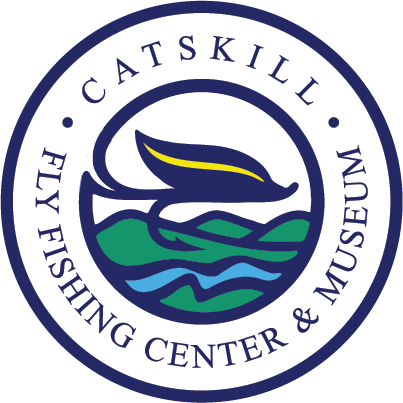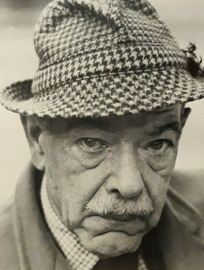Arnold Gingrich
Arnold Gingrich (1903-1976)
In 1933, at the age of 29, Gingrich founded Esquire magazine. It boasts of having published 15 Nobel and 50 Pulitzer prize winners - more than any other magazine in the world. Esquire, Inc., grew under Gingrich's leadership to a diversified corporation with operating groups in the fields of education & leisure in addition to publishing. A scholar, author, and intrepid trout fisherman, Gingrich guided the editorial policies of the magazine for 43 years.
One of Gingrich's first "catches" among authors was Ernest Hemingway. An ardent fan, Gingrich was buying a Hemingway first edition in a used bookshop one day when the author walked in. He immediately signed Hemingway as a contributor to the magazine. The funds from Hemingway’s first contribution helped him procure his beloved and often written about fishing boat, “Pilar.”
In his later years, Gingrich used his pen and rod to weave himself into the very fabric of the history of fly fishing. Hardly a single name of note has been omitted from his pages. So much so that it’s often difficult to tell who he actually knew and who he merely admired. He was close friends with Lee Wulff and Preston Jennings, and quoted Ed Hewitt constantly. He was the best sort of storyteller in that regard. By today’s standards we might call him a name-dropper, but as all four of his fly fishing books were published within nine years (1965-1974) his works stand as both a reflective account of the golden age of the Catskills paired with the region’s excitement regarding the blossoming of the mid-century tailwaters. He fished and wrote about the Esopus extensively, including an account of using LaBranche’s Pink Lady exclusively on its waters for a full season in the early 50s. He kept meticulous records and reported in hindsight that his daily average on the mighty Esopus was “only 6.5 trout per day.” A far cry from his 13.5 fish average in the season of 1956.
Nevertheless, Gingrich was a staunch traditionalist at heart who shunned the invention of nylon leaders and described the modernist writings of folks like Schweibert and Ovington as merely “okay.” He preferred trout on light tackle and shied away from the sirens of the salt who pulled so many of our Catskill heroes toward the larger prey of the Atlantic. Like many of us, he regarded the writings of the giants as gospel, and honored them all in his own published accounts of fishing, of the classic flies, and of rods not made of graphite. Gingrich’s books helped enshrine the history and heritage of fly fishing to his mass audience at a time when the advent of more sophisticated fishing gear threatened to forever silence our traditions. His books stand up as both great storytelling and unique historical accounts of the history of fly fishing. His temperament and joy make Arnold Gingrich a welcome addition to the Catskill Fly Fishing Hall of Fame.

